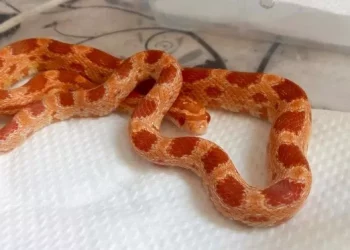Sun conures, also known as Aratinga solstitialis, are one of the most colorful and lively parrot species that bird lovers adore. These vibrant birds are famous for their stunning plumage, ranging from bright yellow to orange and green, along with their playful and affectionate personalities. They are highly social, intelligent, and vocal, making them a popular choice for pet owners. However, just like other birds, sun conures have specific biological traits and needs that potential owners should be aware of.
One of the common questions that come up when discussing the care of sun conures is whether they sneeze. For new pet bird owners, understanding the health and behavior of their feathered companions is critical, and this is why it’s important to explore the topic of sneezing in sun conures. While sneezing may be a normal behavior for humans, it can signal a variety of things in birds, from simple irritants to underlying health conditions.
In this article, we will explore whether sun conures sneeze, what it means when they do, and how to keep your pet healthy by recognizing the signs of illness.
What Is Sneezing?
Sneezing is a common reflex action in many species, including humans and birds. It is the body’s natural way of clearing the nasal passages of irritants such as dust, pollen, or mucus. Sneezing occurs when the body expels air forcefully through the nose and mouth, often accompanied by a sound or a quick exhalation. In humans, sneezing is typically harmless and can occur due to allergies, infections, or irritants in the environment.
For birds, sneezing can also serve as a mechanism to clear their respiratory passages, but the context and causes behind sneezing can be different. It is important to understand that sneezing in birds is not always a simple, benign reflex. While some occasional sneezing can be normal, persistent or frequent sneezing may indicate a health problem that requires attention.
Do Sun Conures Sneeze?
Yes, sun conures can sneeze, just like many other bird species. It is not uncommon for them to sneeze from time to time. Sneezing in sun conures is generally a natural process, helping them expel dust, particles, or other irritants from their respiratory system. However, frequent or persistent sneezing is not typical and could be a sign of something more serious, such as an infection or a respiratory issue.
It’s important to distinguish between normal sneezing and sneezing caused by illness. A single sneeze or an occasional sneeze can happen when a bird has been exposed to an irritant like dust, smoke, or strong scents. But if your sun conure is sneezing excessively, accompanied by other symptoms like nasal discharge, lethargy, or changes in appetite, it could indicate an underlying health problem that requires veterinary attention.
Causes of Sneezing in Sun Conures
There are several possible causes for sneezing in sun conures. Some of these are harmless, while others may signal an infection or other health issue. Here, we will explore the most common causes of sneezing in sun conures.
1. Environmental Irritants
One of the most common causes of sneezing in sun conures is environmental irritants. These include substances such as dust, pollen, cigarette smoke, cleaning products, air fresheners, perfumes, and other airborne chemicals. Sun conures have sensitive respiratory systems, and exposure to irritants can cause them to sneeze as they attempt to clear their nasal passages.
If your sun conure is exposed to any of these irritants, it is essential to reduce their exposure. Keep the bird’s cage in a well-ventilated area, away from smoking, strong cleaning agents, or strong scents. Ensure that the room is dust-free and that the air is not too dry or too humid. Avoid using air fresheners or perfumes around your bird, as these can cause irritation to their respiratory system.
2. Dry Air
Birds, especially sun conures, are particularly sensitive to dry air. Dry air can irritate their nasal passages, leading to sneezing or other respiratory symptoms. This is more common in winter when indoor heating systems dry out the air. If you notice that your sun conure is sneezing more frequently during colder months, it might be due to the dry air in your home.
To combat dry air, consider using a humidifier in the room where your bird spends most of its time. You can also place a shallow dish of water near the cage to increase humidity levels. Providing your bird with regular misting or setting up a bird-friendly air purifier can help keep the air clean and comfortable.
3. Infections
Respiratory infections are another possible cause of sneezing in sun conures. Birds, like all animals, can develop bacterial, viral, or fungal infections in their respiratory systems. Infections may cause a variety of symptoms, including sneezing, nasal discharge, wheezing, difficulty breathing, or a change in the bird’s vocalization.
One of the most common respiratory infections in pet birds is Psittacosis, also known as parrot fever. This bacterial infection is highly contagious and can cause symptoms such as sneezing, nasal discharge, lethargy, and loss of appetite. If your sun conure exhibits any of these signs, it is important to seek veterinary care immediately. Psittacosis can be treated with antibiotics, but if left untreated, it can be life-threatening.
Other respiratory infections, such as those caused by bacteria like Chlamydia or Mycoplasma, can also cause sneezing and other symptoms. If you suspect that your bird has a respiratory infection, it is crucial to consult with a veterinarian who specializes in avian care for a proper diagnosis and treatment plan.
4. Allergies
Birds, like humans, can suffer from allergies. While it’s not as common, some sun conures may develop allergic reactions to certain foods, dust, or airborne allergens. If your sun conure is sneezing and showing signs of other allergic reactions, such as itching, swollen eyes, or skin irritation, it may be due to an allergy.
To help alleviate allergies in your bird, it is important to identify the source of the allergy. You may need to change your bird’s diet, remove potential allergens from the environment, or reduce exposure to airborne particles. An avian vet can help you pinpoint the cause and provide guidance on managing allergies in your pet bird.
5. Foreign Objects in the Nasal Passages
Sometimes, sun conures may sneeze due to a foreign object being lodged in their nasal passages. This could be a small piece of food, dust, or a feather that gets stuck. Sneezing is the body’s natural response to try and expel the object. If the object is not dislodged with sneezing, it could cause irritation or even infection.
If your bird is frequently sneezing and showing signs of discomfort, such as rubbing its face or beak on the cage or on objects, there might be a foreign object blocking its nasal passages. In this case, it’s best to consult with a vet to ensure that the bird’s respiratory system is clear.
6. Mites or Parasites
Mites, lice, and other parasites can also affect a sun conure’s respiratory system. These tiny creatures can irritate the skin, feathers, and nasal passages, causing sneezing and other respiratory symptoms. If your sun conure is sneezing along with signs of skin irritation or feather loss, it may be dealing with a parasitic infestation.
Your veterinarian can conduct tests to determine if your bird has mites or other parasites. They may recommend treatments such as medication or topical treatments to eliminate the parasites and provide relief.
When to Seek Veterinary Help
While occasional sneezing in sun conures may not be a cause for concern, persistent or excessive sneezing could be a sign of an underlying health issue. If your bird is sneezing frequently and showing additional symptoms such as:
- Nasal discharge (clear, yellow, or green mucus)
- Difficulty breathing or labored breathing
- Lethargy or loss of appetite
- Changes in vocalizations (such as hoarseness or decreased chirping)
- Excessive scratching or rubbing its face
- Swollen eyes or redness around the beak
It is important to seek veterinary care as soon as possible. Respiratory infections, bacterial or fungal diseases, or parasites require prompt attention to prevent complications.
How to Care for a Sun Conure’s Respiratory Health
To keep your sun conure healthy and reduce the likelihood of sneezing or respiratory issues, follow these general care guidelines:
Maintain a Clean Environment: Regularly clean your bird’s cage, food and water dishes, and toys. Ensure the bird’s environment is free from dust and other potential allergens.
Proper Ventilation: Provide a well-ventilated space for your bird to avoid exposure to stale air or airborne irritants. Avoid placing your bird near air conditioning units or heating vents that could dry out the air.
Monitor Temperature and Humidity: Keep your bird in a temperature-controlled environment. Avoid sudden temperature fluctuations and ensure the air is not too dry.
Balanced Diet: Provide a nutritious, balanced diet to support your sun conure’s immune system and overall health. This includes fresh fruits, vegetables, seeds, and pellets.
Regular Checkups: Schedule regular checkups with an avian veterinarian to monitor your bird’s health and catch any potential issues early.
Conclusion
In summary, sun conures do sneeze, but occasional sneezing is typically a normal reflex action to clear their nasal passages from irritants. However, excessive or persistent sneezing, especially when accompanied by other symptoms, could indicate a health issue, such as an infection or allergies. As a pet owner, it’s important to keep an eye on your bird’s behavior and seek veterinary care when necessary. By providing a clean, comfortable, and safe environment, along with regular veterinary checkups, you can help ensure that your sun conure remains happy and healthy for years to come.
Related Topics:





















